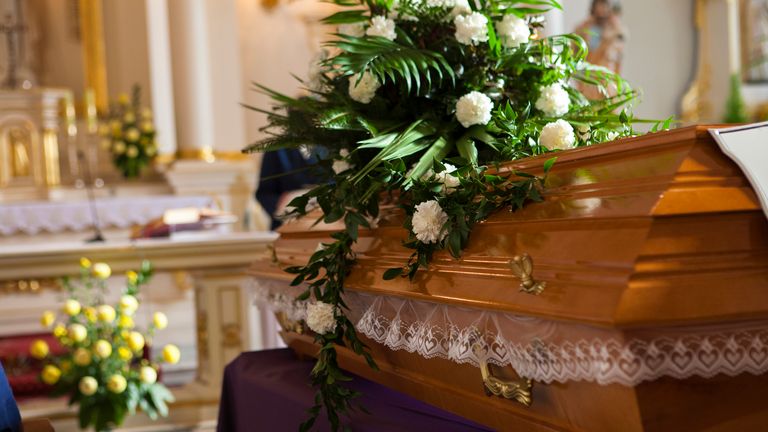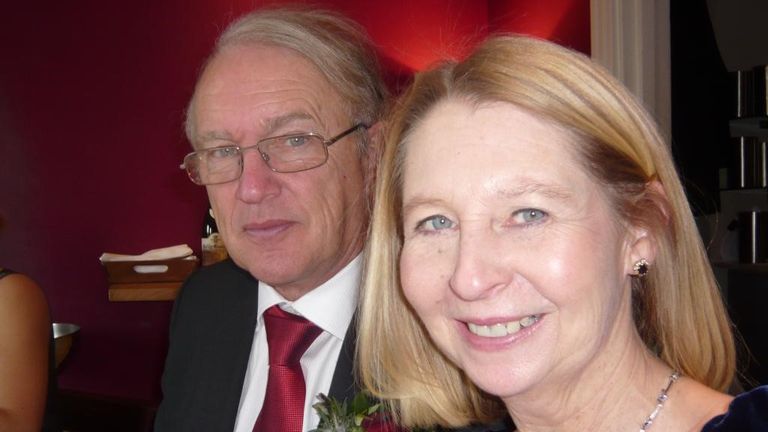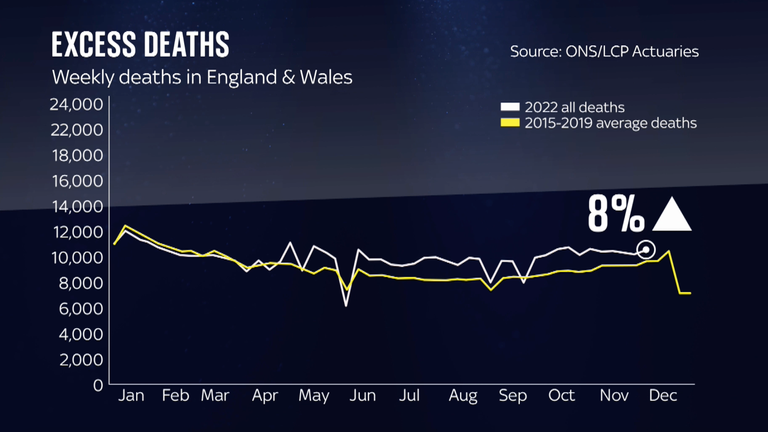Due to a high number of excess deaths in 2022, pathologists are struggling to cope with the “constant onslaught” of demand of carrying out vital post-mortems so bodies can be released to loved ones for funeral services.

Grieving families are having to wait more than a month to hold funeral services because of a backlog in post-mortems caused by a shortage of pathologists, as country faces a “grief crisis”.
Due to a high number of excess deaths in 2022, pathologists are struggling to cope with the “constant onslaught” of demand of carrying out vital post-mortems so bodies can be released to loved ones for funeral services.
It’s leaving many families having to wait over a month before they can make plans to say goodbye.
In early December, Chris Spencer, 72, with a history of known heart issues, died in his sleep. Against his family’s wishes, a post-mortem was ordered, but almost a month on they don’t know when it will take place and when they’ll be able to properly say goodbye.
His daughter Katherine Levy-Spencer said it’s a system that feels “really inhumane”.

She told Sky News: “My dad was a brilliant father, he was just a really friendly, lovely person who deserves better than this. We’ve still got no post-mortem, no idea when we’re able to plan the funeral and our lives.
“We can’t move on, we can’t say goodbye. We’re in this hellish limbo. That just seems really inhumane.”
It’s made mourning Chris’s death even tougher as the family held their first Christmas without him.
“I don’t understand why it’s taken so long. I don’t think it’s right.
“I understand the pressures that the coroners are under and I’m very sympathetic to that, but I don’t think it’s right that this system is failing so many families and I know we’re not on our own.”
In some parts of the country loved ones are facing a two-week wait for a decision on whether the deceased needs a post-mortem, meaning it could be way over a month before they’re able to have a funeral.

At Barrington’s Funeral Services in Liverpool, the delay in receiving bodies is proving frustrating.
David Barrington, the funeral director is also the ex-president of the National Association of Funeral Directors, he says following on from the pandemic we’re going through a “grief crisis”.
“Families want to say goodbye to their loved ones, to the people that have passed away and if they can’t it just compounds the grieving process.
“This delay and backlog just makes it more stressful, and we’ve had to change how we work.
“We’ve had to start using camouflage makeup to make deceased people look presentable because with the delay there are visible changes happening.”
He added: “We want to work hand in hand with services such as the coroner service, the hospitals and pathologists, we want to support them in their work.
“But there needs to be an acknowledgement of the people who are grieving and try to make it as fast as possible so that they can say goodbye to their loved ones.”
There have been more than 540,000 deaths in 2022 which is 8% more than the five-year pre-pandemic average.
That’s down to delays in diagnosis and care and longer hospital waits for emergency treatment. But the key issue is one replicated across the health service – staffing.
Post-mortems are mostly carried out by NHS pathologists outside of their regular work and their focus right now is diagnosing a backlog of cancer cases.
Royal College of Pathologists chief, Professor Michael Osborn says it’s a difficult choice: “Post-mortems are an area where if people have to prioritise between cancer work and pressures in the NHS and doing post-mortems which are not part of their NHS work, there may be pressures that mean they are less able to perform those tasks which are equally important.”
It is however grieving families left waiting and wondering. The difficult process of death is now ever tougher with many not knowing when there’ll be a full chance of closure.
A government spokesperson said: “We have taken steps this year to reduce the coroners’ court backlog following the pandemic, including changing the law so that it is faster and easier for coroners to establish a death is from natural causes without the need for a post-mortem.
“We are also allowing for fully remote inquest hearings and have invested £6.15 billion to help local authorities’ services, including coroners, recover from the pandemic.”
